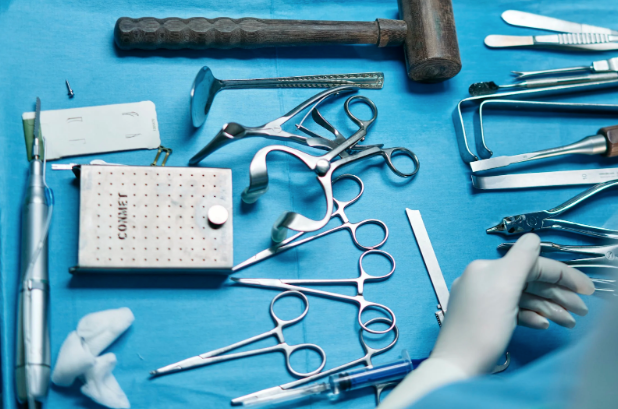If you’ve been invited to the hospital to have a significant surgery, there are many things that you should do to make sure you are well prepared for the procedure. Getting yourself in the right condition and mindset to tackle surgery can make it more likely that you recover well, and that the surgery is a success.
There are many things that you can do in the lead-up to your surgery date to make sure that the procedure goes as smoothly as possible. As well as following your doctor’s advice, there are many things that you can take on yourself to make sure you have a better chance of surgery success. A lot of these things will be your responsibility to sort out, so make sure that everything is sorted in the days leading up to your surgery date. Here are all the best things to do when you’re preparing for surgery, so you can rest well after the procedure.
Organise Travel Arrangements
One of the most important parts of being prepared for surgery is organising how you are going to get there, and how you are going to get home. You may be too anxious or busy to go to the hospital on your own, and you may be too unwell to get yourself home. Therefore, it’s a good idea to make arrangements with a family member or a close friend to take you to your surgery. This way, you don’t have to worry about travel and can focus on being as prepared as possible for your surgery.
Carefully Pack Your Bag
If you’re having a lengthy surgical procedure, you may need to stay at the hospital for a while, maybe a couple of days. You should carefully pack your overnight bag and make sure that you are fully prepared for your recovery. You may need to pack multiple sets of nightwear, day clothes, underwear, and toiletries. You should also think about packing things to keep you entertained, as you may not be able to move around after your surgery. Things such as books, magazines, and small game consoles are great for keeping you entertained. Don’t forget to pack your everyday medication, your phone to contact people, and your glasses if you wear them.
Follow All Advice
It’s important to listen carefully to what your doctor or surgeon tells you and follow their advice closely in the days before and after your procedure. For example, you may be told not to eat for 24 hours before your surgery – you should make sure that you follow this advice closely. Depending on the surgical procedure, you may be told to do certain exercises, and you should keep up with them. Your doctor or surgeon will usually give you a pamphlet or a document full of information with instructions before you go, so make sure you keep this safe.
Take Your Medication
Your doctor may also ask you to take certain medications before your surgery, and you should make sure that you do so. There are some medications that you need to discuss with your doctor. For example, if you take insulin to manage diabetes, you should talk about this with your surgeon or doctor. As part of your pre-operative assessment, you will be asked whether you are allergic to certain medications such as anaesthetics. If you have been told to stop taking certain medications, you must do so. If you don’t, your surgery could end up being cancelled.
Keep Up With Your Hygiene
One of the best things for having a successful surgery is making sure that you keep up with your hygiene in the lead-up to the surgery date. If you don’t keep clean, you could risk infection after your surgery, which would impact your recovery period. Before you have your surgery, make sure you have a bath or shower and that you remove all of your body piercings, makeup and nail polish. This will help to remove unwanted bacteria in the operating room and make it easier for your operating team to see if you’re okay.
Talk About Your Anxieties
If you are very stressed before your surgery, it could impact whether you have a good recovery stage. It’s important to mitigate these anxieties and stress before you go through surgery, so you can be as prepared as possible. There are many people you can talk to about your anxieties and fears. For example, your friends and family should be able to help you talk through any initial fears and doubts that you may have, allowing you to alleviate some of the stress and anxiety. If your fear surrounding the surgery is getting worse, you can always contact your doctor or the hospital. They will have resources and information which can help you put your mind at ease, and help you ease stress.
Arrange For Home Help
After a hard surgery, you may need help when you’re recovering at home. You may need help to get up and down stairs, to cook meals, and to bathe yourself. You may need someone to help you for quite some time, a couple of weeks at the very least. You should organise for a trusted friend or family member to live with you and help you with your recovery. They can move in with you a few days before your surgery so you can get used to them living with you and helping you out post-surgery. If you have children, you may also need to arrange for them to be taken care of in the initial days after your surgery.
Prepare Your Home
You may need to reorganise your home in order to facilitate your post-surgery recovery. For example, depending on your surgery, you may not be able to get up and down stairs. You may need to organise your home so you can live downstairs, helping you to get about easily. You should also remove all potential hazards from your home, including hard corners, wires you can trip over, and removing loose rugs.
Improve Your Diet and Lifestyle
One of the major parts of preparing for your surgery is to make sure your diet and lifestyle are optimised for a good recovery. Adding certain things to your diet can make your recovery much easier. For example, stopping smoking can help you when it comes to your recovery and how your body heals scars. Medical researchers who specialise in abdominoplasty Manchester based have found that increasing protein in your diet can improve your body’s scar healing by a significant amount. You should also make sure to increase your fruit and vegetable intake, as this can improve your immune system and help you fight off infection post-procedure.

























